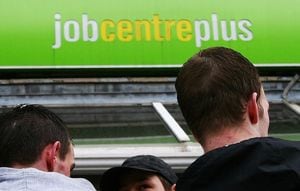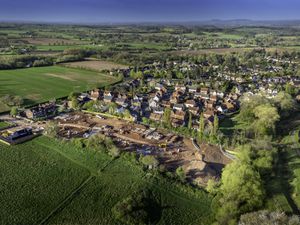Jobless number up again in West Midlands
Unemployment rose again in the West Midlands in the three months to October.

The number out of work in the region was up 16,000 on the quarter to 150,000.
Employment across the West Midlands was also down from 2.78 million the previous quarter to 2.75m, but nationally record numbers of people are in work and average earnings are at their highest level for a decade.
UK employment increased by 79,000 in the three months to 32.4 million, the highest since records began in 1971.
Unemployment increased by 20,000 to 1.38 million after a big increase in the number of men out of work, although the total is still 49,000 lower than a year ago, the Office for National Statistics said. The UK's jobless rate is now 4.1 per cent, 0.2 per cent lower than a year ago.
Nationally numbers claiming unemployment benefits, including Universal Credit and Jobseeker's Allowance, last month were 962,735 – a rate of 2.3 per cent.
For the West Midlands the rate is 2.9 per cent with numbers claiming up 790 to 106,435.
Wolverhampton with a rate of 5.3 per cent had a rise of 210 to 8,615 with the same increase to 5,335 in Walsall (3.1 per cent). Dudley saw a rise of 90 to 7,670 (four per cent), but Sandwell bucked the trend with a fall of 95 to 7,225.
In Staffordshire the claimant numbers were also down 135 to 6,980 (1.3 per cent). Cannock Chase had a fall of 35 to 800 (1.,3 per cent) with Stafford a fall of 10 to 820 (one per cent), Lichfield also falling 10 to 845 (1.4 per cent) and South Staffordshire down five to 965 (1.4 per cent).
For Wyre Forest, including Kidderminster, numbers claiming fell by 30 to 890 (1.5 per cent)
The ONS reported that average earnings increased by 3.3 per cent in the year to October, up from 3.1 per cent the previous month.
It was the highest figure since 2008, and is more than the latest inflation rate of 2.4 per cent.
The ONS said average weekly earnings, adjusted for price inflation, increased by 1.1 per cent, including bonuses, compared with a year ago.
The increase in both unemployment and employment is explained by the UK's rising population, and fewer people classed as economically inactive, which includes those on long-term sick leave, students, and people who have given up looking for a job.
Employment Minister Alok Sharma said: "Today's statistics show the enduring strength of our jobs market, with wages outpacing inflation for the ninth month in a row and employment at a record high.
"This is benefiting people across the country, with almost 400,000 more people in work in the last year, putting more money in the pockets of working families, and showing the UK remains a great place to invest and do business."





